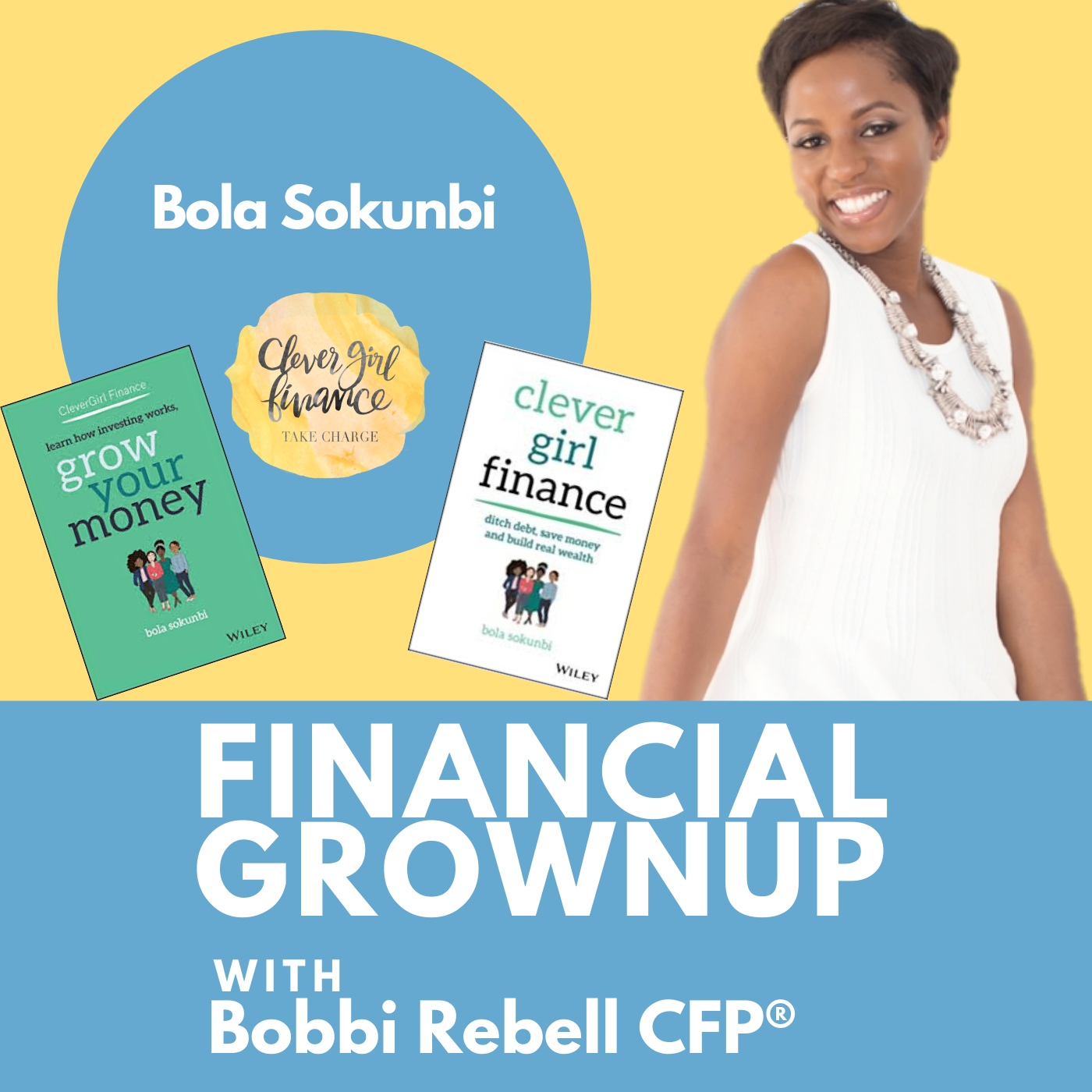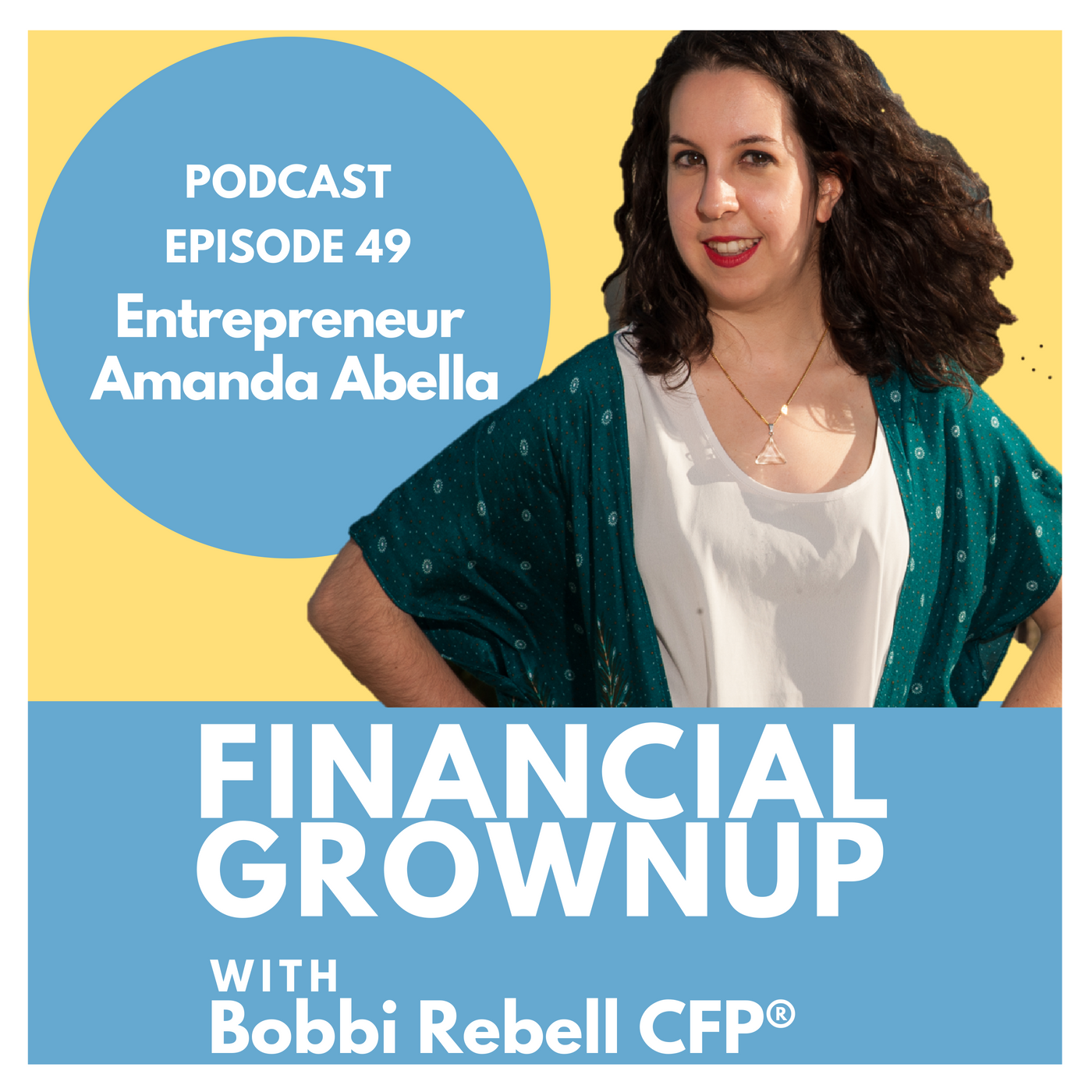Bobbi Rebell:
Fran Hauser became a financial grownup very young, helping her immigrant parents build their businesses by doing the books and serving as a liaison to clients as early as 1st grade. The author of “The Myth of the Nice Girl, Achieving a Career You Love Without Becoming a Person You Hate” now applies those early life lessons to her search for startup investment opportunities.
Fran’s money story:
Fran Hauser:
Yes. So my parents are Italian immigrants who moved to Mount Kisco, as you said, and like many immigrants it took a lot of courage to make this move. They were uneducated, they didn't speak the language, and they were moving to a place that was completely foreign to them. What each of my parents did have though, was a skill. So my father was a stonemason, my mother was really good at sewing, so they both started small businesses. My dad a stonemeasonry business, and my mom opened up a tailoring shop with her best friend. Being the oldest of four, they needed my help, especially when it came to communication. So when I was in first grade I was preparing all of my dad's invoices. One memory that I have is I could only add at that point in time, I couldn't multiply yet, so my aunt actually created a sales tax chart for me, so that if the monthly maintenance was $300, I could see exactly what the sales tax was, and then just add the two numbers together.
Fran Hauser:
So that was first grade, and then even in middle school I was helping my mother with marketing. So helping her come up with a logo, and getting different marketing and sales materials printed. So I got exposed to business at a very young age, and even understanding things like revenue, and expense, cashflow, you know seeing that when more cash comes in than goes out, decisions that need to be made around what to do with that extra money. It was really interested watching my dad because he took some calculated risks and invested in both commercial and residential real estate, which proved to be fruitful. I would say at a very, very, very young age I played this role of bookkeeper/marketer/general manager.
Fran Hauser:
Another vivid memory I have that I'll just share with you is when my father was asked to go look at a job, a potential client, and give them an estimate, he wasn't able to understand the directions to actually get to the house. So I would listen in on another phone and write down the directions, and then I would go in the car with him and we would actually drive to the residence together, and then I would get out and I would basically be the translator for him. So that was my childhood, pretty unconventional.
Bobbi Rebell:
Wow. Very unconventional. How did you assume this role? Were there specific deliberate conversations, or did it just evolve organically as you grew up in the household?
Fran Hauser:
It really evolved organically, because I was the oldest. Really, these things just fell on me. It made sense, if something was broken, even in the house, and needed to be repaired, I would be the one to call the plumber or the contractor, and at the time it felt really hard. It was frustrating, for sure, at times because I just felt so different from all of my "American" friends, who were doing sleepovers and play dates, and I had so much more responsibility. Obviously, looking back, it was actually such an incredible experience, because I learned so much, not just about business but also about risk taking. Watching my parents, who had so much going against them, they were at such a disadvantage, but they were still able to take these risks. Whether it was building these businesses, or investing in real estate, and if you look at my career, I've taken many risks in my career. I've reinvented myself several times. I left Coca-Cola and the late nineties to go to an early stage internet company, Movie Phone. Or five years ago, I left a really comfortable job at Time Inc. to move into startup investing.
Fran Hauser:
So I haven't been afraid to take risks, and I think a lot of that comes from seeing how disadvantaged my parents were, and feeling like if they could take risks, I should be able to.
Bobbi Rebell:
I wanted to ask you, so you mentioned, and I was going to bring this up, that you now are a startup investor. How did this background in business and understanding risks, and understanding strategy and marketing, and even just the basic economics of business, how does that inform your approach as an investor now?
Fran Hauser:
So I think in a lot of ways. For starters, when I'm evaluating the entrepreneurs I'm looking at them and I'm saying, "Do they have the capacity to take risks? Will they jump in with both feet?" And I'm also looking at what kind of mindset do they have? Are they optimistic? I always felt like my parents approached every single venture with such optimism, and with an abundance mindset, and treating people kindly and with respect. So those are things that I really look for in an entrepreneur, and then the other side of it is the brass tactics operational side, which is I feel like I'm really good at looking at financials and understanding what the risks are, really getting nitpicky when it comes to the assumptions that are being used. So I feel like I can look at a PnL pretty quickly, and projected cashflows, and all that good stuff, and I'm just co comfortable. I'm so comfortable with numbers, and I'm so comfortable with looking at forecasts and really trying to make sense of it, and also understanding is there a there there?
Fran Hauser:
The other part too, I would say, is just understanding markets, understanding consumers. I think that also comes from just having spent so much time with my parents clients. So it's impacted me as an investor in so many different ways.
Fran’s Money Lesson:
I would say the lesson is to not be afraid to take risks, and when you do so, really approach it with a mindset of abundance and optimism, and don't be afraid. Don't be afraid to go all in and to jump in with both feet, and then also the last thing I would say, which really ties back to the book, is to treat people with kindness and respect, because I think you look at my parents who barely spoke a word of english, and they were still able to communicate through a lot of nonverbal cues, and a lot of that had to do with being charming, and being kind, and that will take you far.
Bobbi Rebell:
Yeah, because the book is really all about being nice, but in a strategic and smart way.
Fran Hauser:
Yes, being nice in a way where you're not a pushover, and you're not veering into people pleasing territory. It's really about how you can be both nice and strong. Those two things are not mutually exclusive, and that you bring both of those into virtually any situation at work.
Fran’s Everyday Money Tip:
Yeah, I love this. So what we do in my house is, instead of a normal piggy bank, we collect coins in a five gallon water jug. The kids love it because it's so much bigger than a piggy bank, and it's clear, so you can see the progress. The last time we cashed it in the coins were worth $4000, and it took us several years to fill it up, but it's just a really fun way to teach your kids about saving and about goals.
Bobbi Rebell:
Where do you cash it in, what's that experience like? Is it one of the machines, or do you bring it to a bank?
Fran Hauser:
It's actually hysterical because it's so heavy, so what you have to do is we put duct tape over the top of it to close it, and then we literally roll it-
Financial Grownup tip number one
one thing that Fran talks about in The Myth of the Nice Girl is the importance of how things are presented, the tone that you use in your voice. So you can be firm, and not be a pushover, and still be nice. Think about the way that you say things.
Financial Grownup tip number two
don't say sorry so much. Try replacing it with "Thank you." Fran points out that many women apologize of things that not only were not their fault, but also they aren't really sorry about. For example, not being able to attend an event. She would often apologize for declining an invitation, instead, she advises to simply say, "Thank you for the invitation." And say that you will not be able to attend.
Episode Links:
Fran’s website - Franhauser.com
Fran’s book - The Myth of the Nice Girl
Follow Fran!
instagram - @fran_hauser
twitter - @fran_hauser
Some of the links in this post are affiliate links. This means if you click on the link and purchase the item, I will receive an affiliate commission at no extra cost to you. All opinions remain my own.
As a child, the future founder of McPherson Strategies learned about money when it was used as an incentive to break a bad habit. Susan McPherson also shares an extremely important money tip about ways to give to charity beyond your means as we get towards the holiday season.
In Susan’s money story you will learn:
-How money motivated Susan to stop a bad habit as a child
-What 4-year old Susan did with her earnings
In Susan’s money lesson you will learn:
-How even seemingly small amounts of money can serve as an incentive to change behaviour
-The importance of using creative tools to teach kids about the value of earning their own money
In Susan’s everyday money tip you will learn:
-How to get paid by your company to volunteer
-The importance of making sure you tap into your company’s matching dollar program when you give to charity
Bobbi and Susan also talk about:
-Susan being on of Twitter 25 smartest women
-Her company, social impact corporate responsibility consultancy McPherson Strategies turning 5 years old!
In My Take you will learn:
-The importance of making sure your co-workers are also aware of company gift matching programs
-How you can leverage organizing a team for a corporate charity event into a networking opportunity as well
Episode Links
Learn more about Susan’s company McPherson Strategies!
Follow Susan!
Twitter: @Susanmcp1
Instagram: @Susanmcp1
Susan mentions Microsoft as an example of a company with a generous gift matching program.
Some of the links in this post are affiliate links. This means if you click on the link and purchase the item, I will receive an affiliate commission at no extra cost to you. All opinions remain my own.























